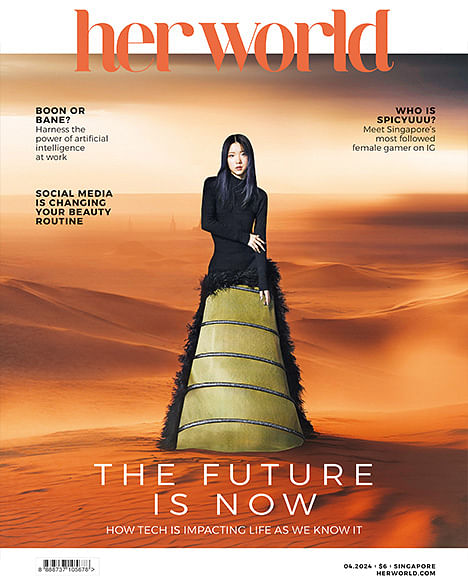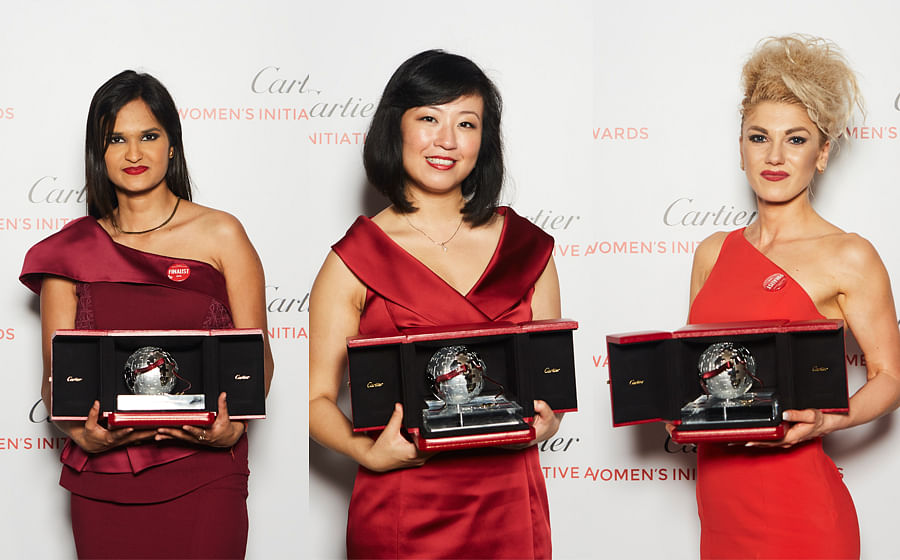
The curtains have drawn on the annual highly esteemed Cartier Women’s Initiative Awards last Thursday (Apr 26) in Singapore for the second year in a row. The 2018 awards celebrated and paid heed to women entrepreneurs with budding startups under the theme “Bold Alchemy”. Alchemy is the process of turning substances into other substances, namely base metals and into gold – so the theme, in layman’s terms, is the exploration of evolving what we have into something better.
Founded in 2006, the Cartier Women’s Initiative Awards are open to women-run, for-profit businesses in any country and sector working to create strong social impact. The awards recognises women with strong visions in entrepreneurship and gives them a global platform to share their ideas with the world.
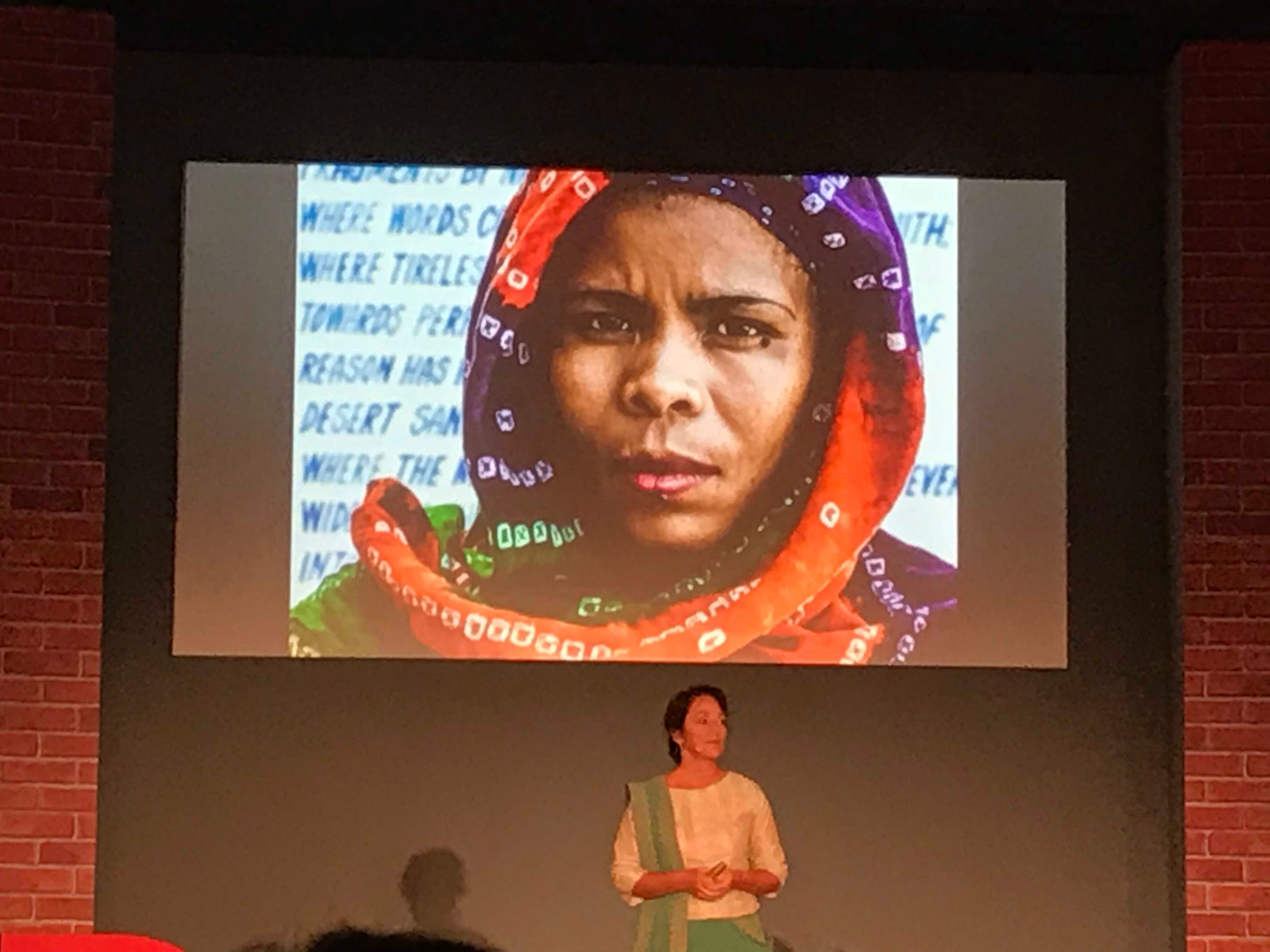
Housed within the auditorium of The Capella, it was truly an inspiring evening filled with motivational talks and discussions on women empowerment.
Presented for the second year in a row by Sandi Toksvig, the UK broadcaster famed for promoting gender equality in politics and society, the ceremony unveiled the Cartier Awards’ new partnership with TED through a specially curated TED session which featured a series of live talks by incredible, accomplished women which included the likes of Halla Tósmadóttir (One-time presidential candidate for Iceland and Cartier Women’s Initiative Awards former laureate) and Zubaida Bai (Founder and CEO of Ayzh).
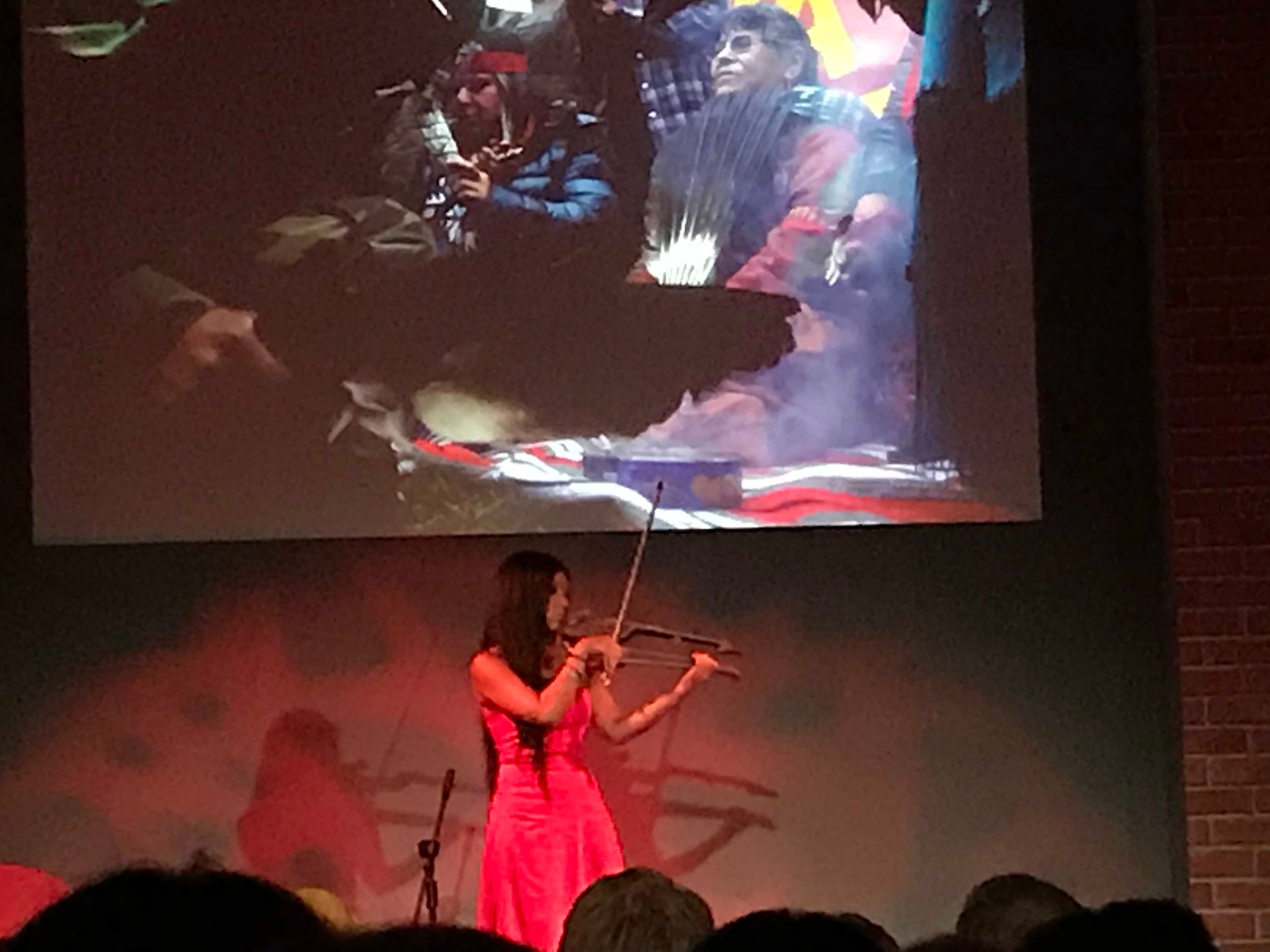
The discussion, which centered around making concrete contributions towards finding solutions to today’s most pressing challenges, was facilitated by TED Institute curator Bryn Freedman and completed by a performance from virtuoso violinist Gingger Shankar.
This was followed by two captivating panel conversations. H.E Sheihka Lubna bint Khalid Al Qasimi (President of Zayed University) and Cartier CEO Cyrille Vigneron exchanged on the importance of cultural diversity in a time of global citizenship while Anousheh Ansari (CEO of Prodea Systems; first female private space explorer), Shinta Kamdani (CEO of Sintesa Group) and Ilian Mihov (Dean of INSEAD) spoke on practical measures to grant women more access to entrepreneurial opportunities.
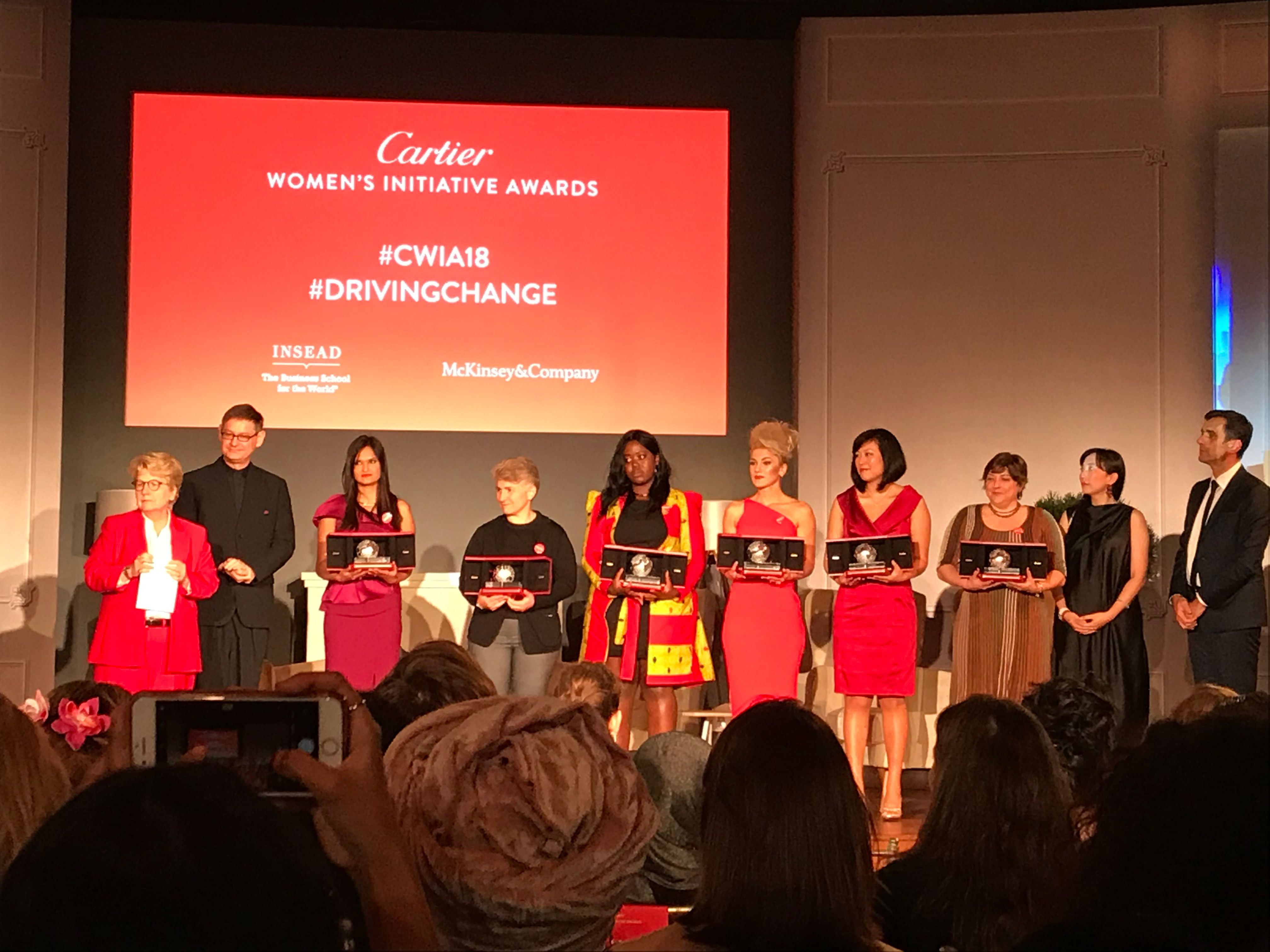
CEO Cyrille Vigneron then announced the laureates selected by an independent international jury amongst nearly 2800 applicants from over 130 countries. The six laureates that received the accolades are:
Swati Pandey, India
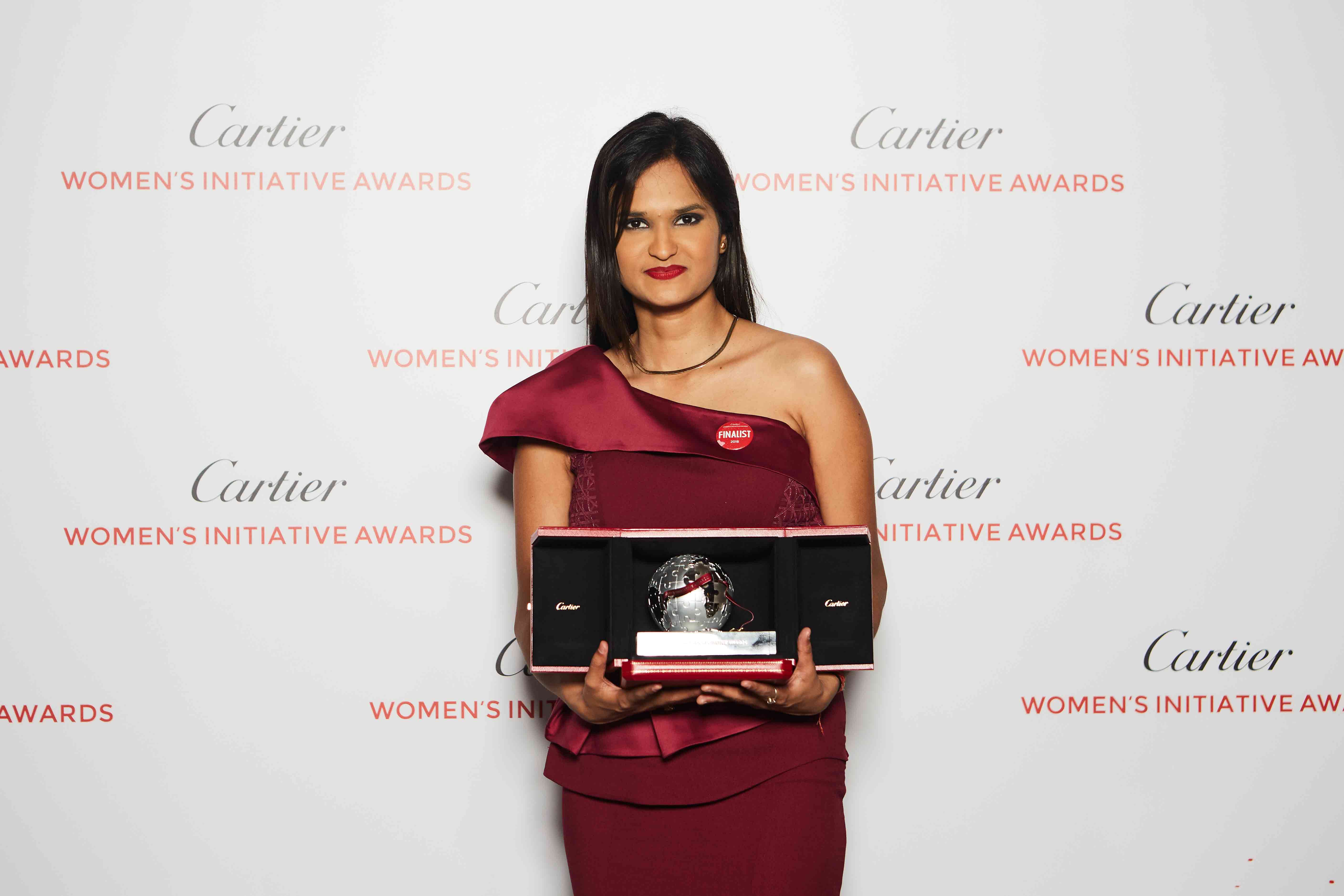
Swati has had first-hand exposure to how severely limiting life with diabetes can be ever since her mother fell ill with it 20 years ago. She started Arboreal Agro Innovations — an industrial scale, vertically-integrated producer of stevia, a 100% natural substitute for sugar. Speaking to Cartier, she said, “I was driven by a sense of conviction that our generation must build upon the sacrifices of our parents, by taking up risks and building global ventures that will solve some of the biggest challenges facing India and the world.”
ALSO READ: WOMEN ON TOP: HERE’S WHAT YOU CAN LEARN FROM THESE FEMALE BUSINESS FOUNDERS
Kristina Tsvetanova, Austria
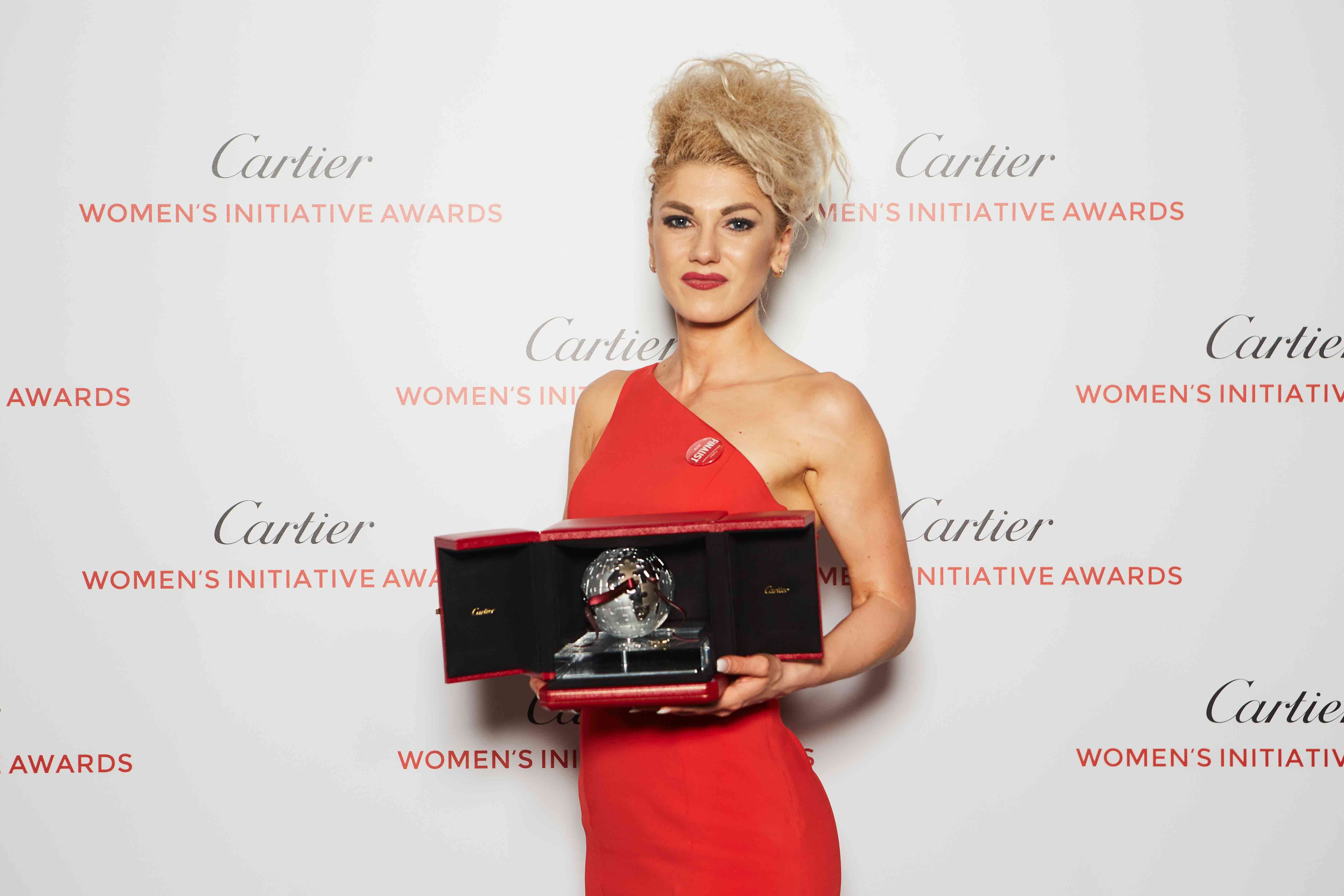
Kristina witnessed first-hand the challenges her visually impaired friend encountered when registering for university classes. It became apparent that the university lacked the infrastructure and support for the blind or visually impaired. Her solution: starting her own company Blitab Technology and creating a tactile tablet which converts text into little smart dots that rise from the tactile screen for the blind and visually impaired.
Paula Gomez, Brazil
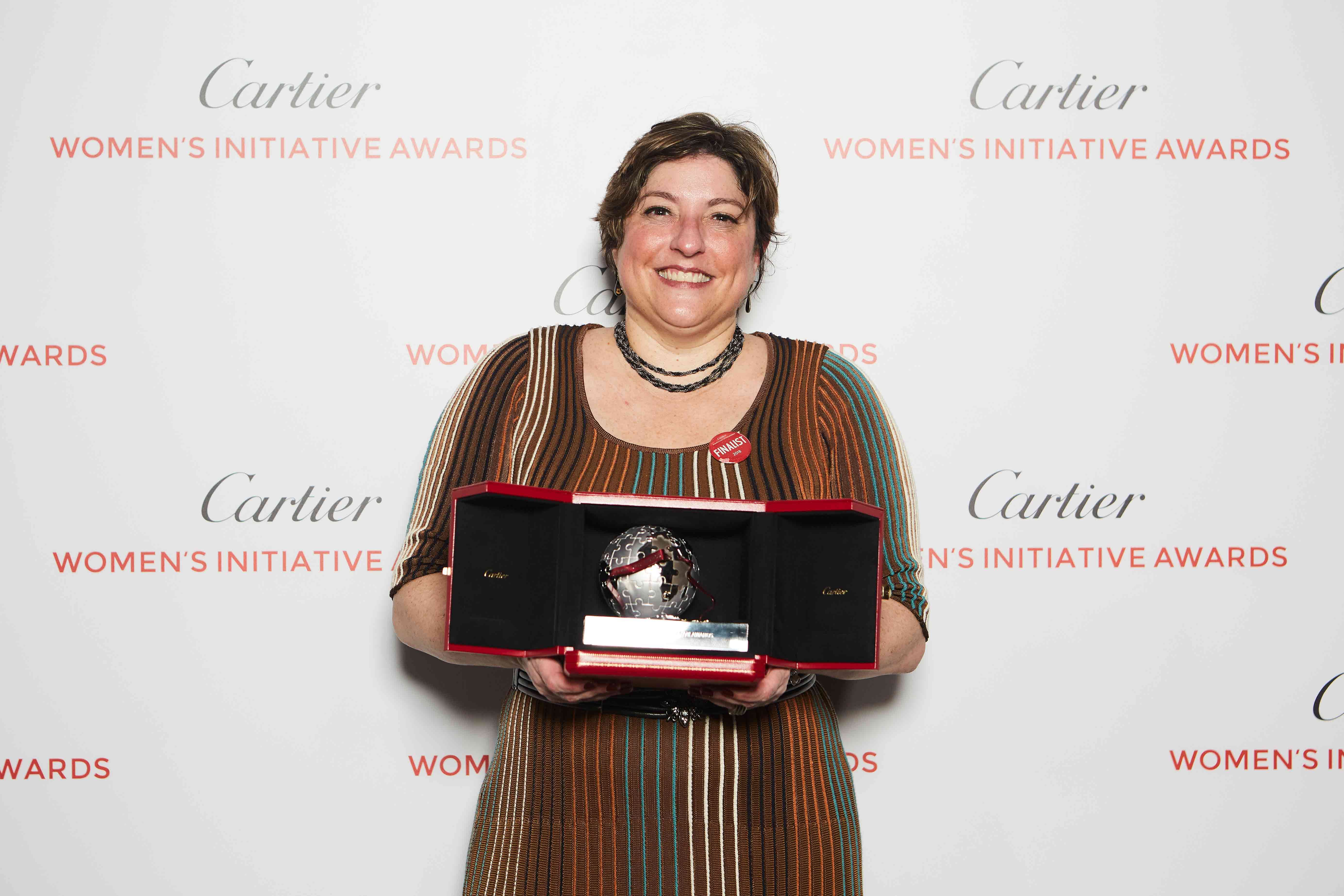
In Brazil, where Paula lives, there are four million people suffering from epilepsy alone. There are currently devices on the market that can alert patients about a seizure only when the seizure is already active. Wanting to change lives for the better, Paula invented a device that alerts patients and caregivers of an oncoming epileptic seizure up to 25 minutes in advance with her company Epistemic.
Siroun Shamigian, Lebanon
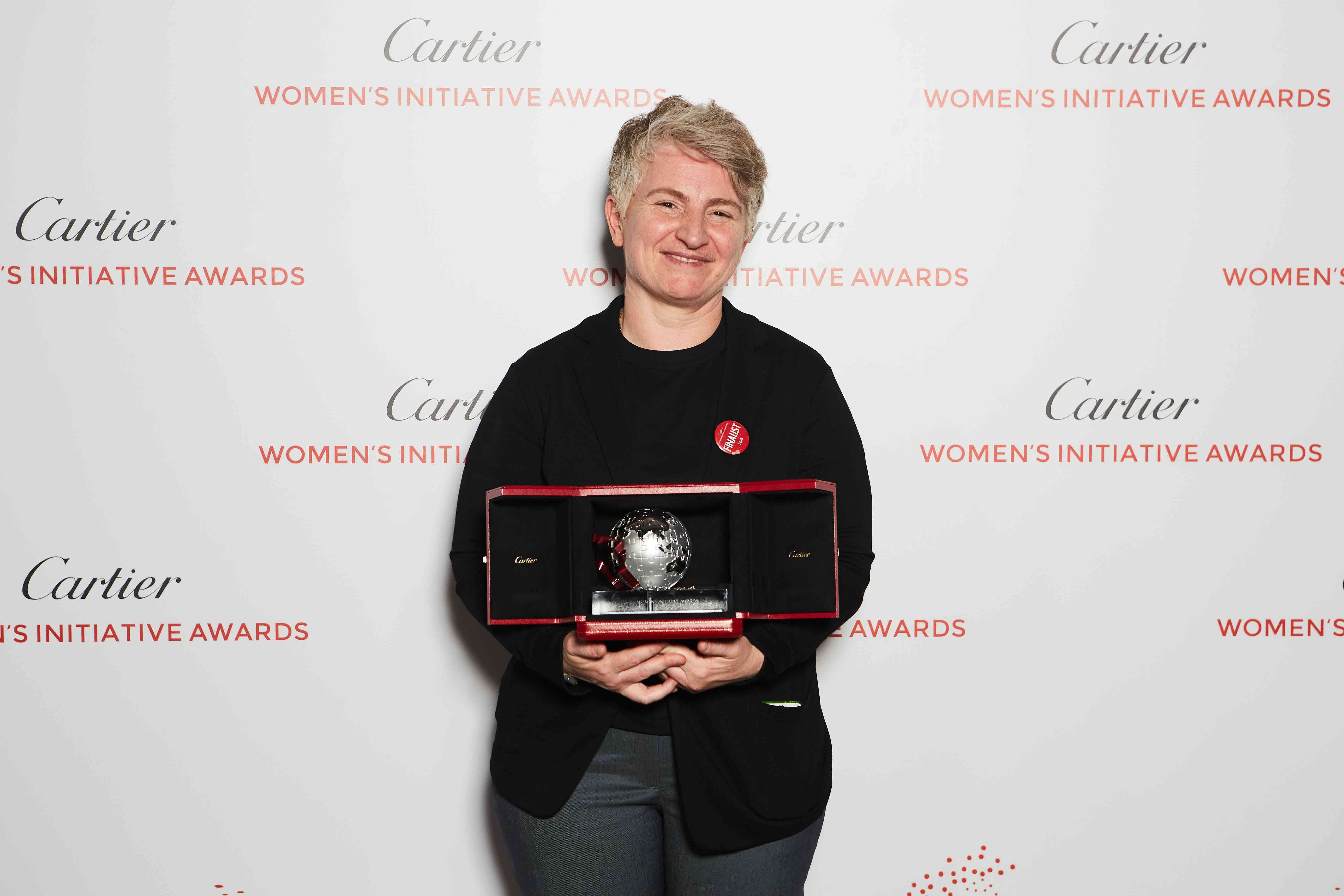
Siroun discovered that Arabic teachers had access to very few support tools; and their challenges at technology integration were the most profound. At the same time, Arabic teachers were surprised to see less and less of their students able to write in Arabic. She knew this problem was only going to get worse and hence had set out to rectify the issue at hand. She then started her company Kamkalima to develop an online platform that uses artificial intelligence and data analytics to help learn and teach Arabic.
Yiding Yu, United States
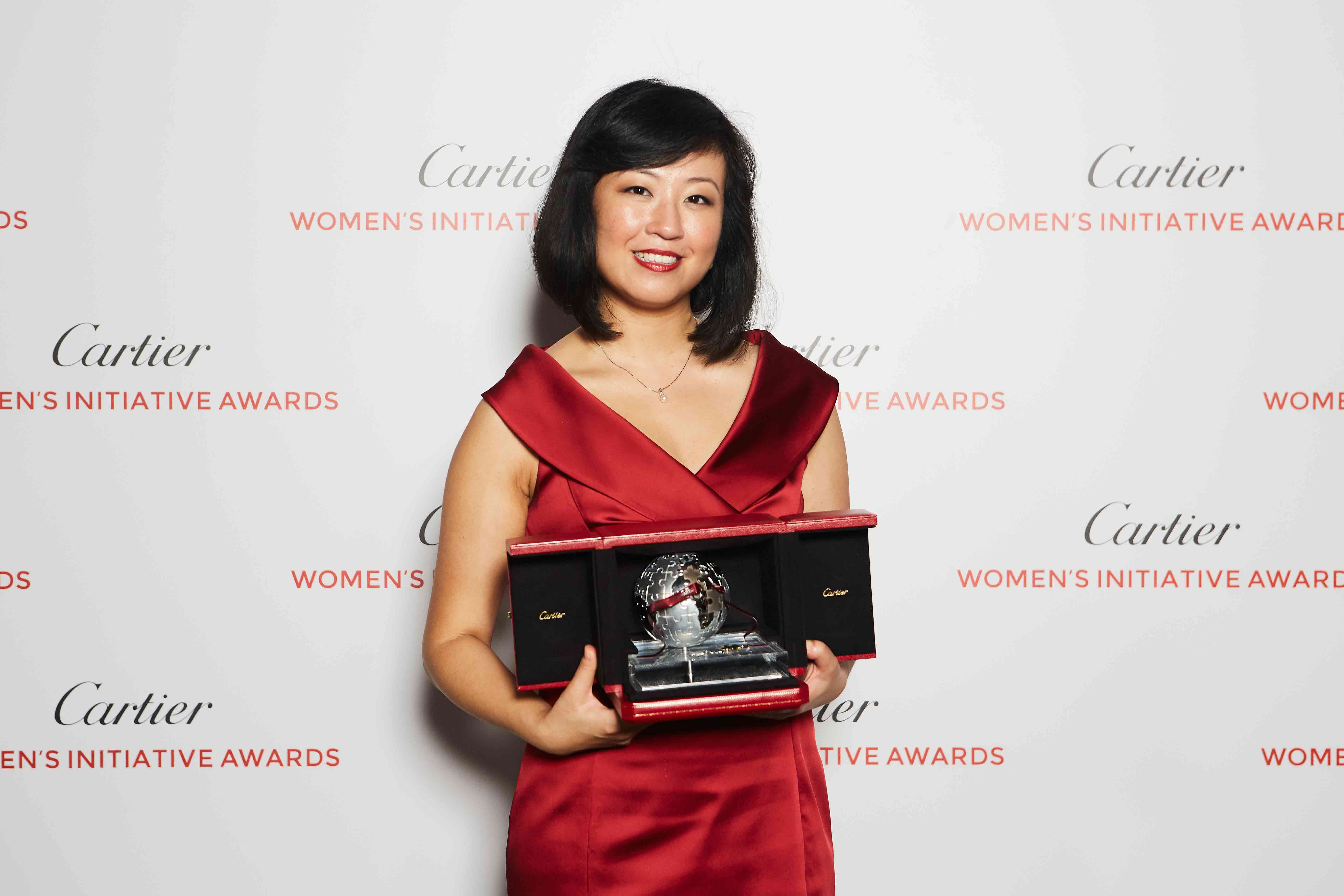
As a trainee doctor in the United States, Yiding Yu was alarmed with the outdated methods hospital emergency departments used to collate patient information on arrival, wasting precious minutes which could be dedicated to urgent treatment. According to her research, millions are left with permanent disabilities each year due to delayed diagnosis and treatment. She started her own firm Twiage, and created digital platform which enables the transmission of real-time data of the patients from ambulance to hospital to tackle this problem.
Melissa Bime, Cameroon
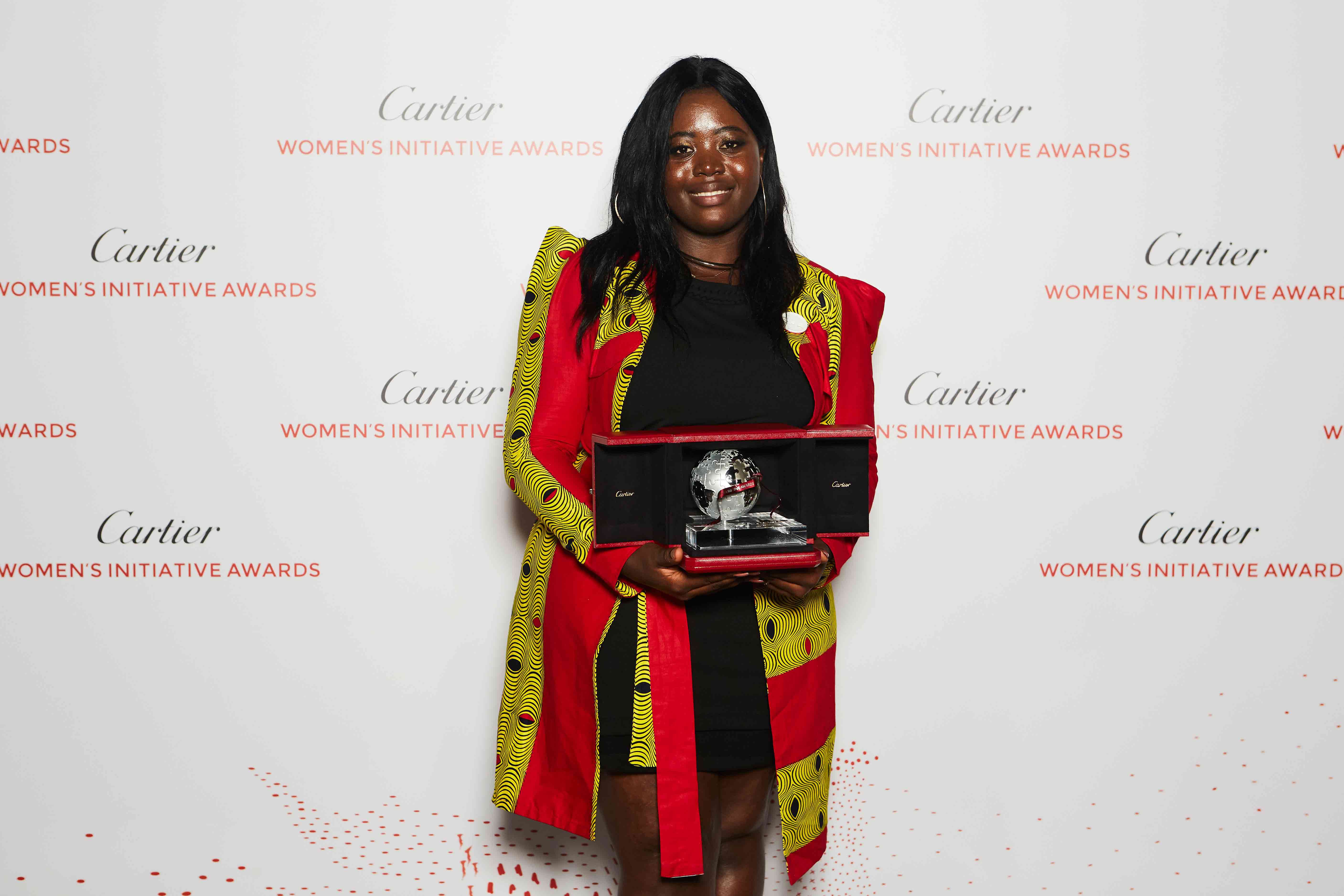
Whilst working in the hospital, she was taken aback by the tragedies witnessed as a result of avoidable conditions, often due to the simple lack of available compatible blood.
“Seeing a little girl dying because the hospital could not source blood from a nearby facility angered me. I could not keep working as a nurse- I did not want to be part of a system where I had to simply watch these cases,” says Melissa.
At the age of 18 then (she is now 21), she took it upon herself to find a solution to the inaccessibility of local blood supplies, experienced by hospitals and doctors in Yaoundé and created an online blood bank and database under the name Infiuss that collects and dispatches blood donations to hospitals.
The 6 laureates will be awarded US$ 100,000 in prize money. As part of this year new enhanced package, the remaining 12 finalists will be awarded US$ 30,000 in prize money. The 6 laureates and 12 finalists will also all be receiving personalized business coaching, media visibility, networking opportunities as well as the option to attend an INSEAD Executive Program (ISEP).
We spoke to the laureates and asked them what they would like to tell their younger selves, as well as the advice they would give to all aspiring entrepreneurs out there. Stay tuned for our video to see the events of the night unfold and find out what these inspiring women had to say.
ALSO READ: WHY OPRAH WINFREY’S GOLDEN GLOBES ACCEPTANCE SPEECH HAS PAVED THE WAY FOR WOMEN IN 2018

